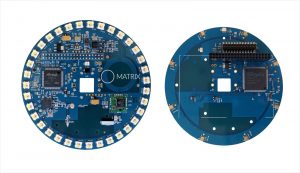The Japanese auto industry has held back its enthusiasm to showcase cutting-edge technology, including self-driving cars and hydrogen fuel-cell vehicles, in a high-profile sports arena ahead of the 2020 Olympics in Tokyo.
But Toyota, the main sponsor of the 2020 Tokyo Olympics, wants to showcase more than just automotive technology.In preparation for next year's Tokyo Olympics and paralympics, Toyota prepared a series of robots for a unified display on July 22, Beijing time.
Toyota released seven robot devices at one time, more than any new Toyota model launch, the seven robots are robot assistant, mascot robot, t-hr3 simulation robot, t-tr1 communication robot, WeChat self-driving car and so on.

There are three kinds of Robot assistants, including HSR: Human Support Robot and DSR: Delivery Support Robot.
One of the HSR models is equipped with a robotic arm that, by working together, can grab objects high up or pick up objects on the ground.
The other HSR is a guided robot with a screen mounted on wheels that can point spectators to the entrance or exit of the stadium or to various facilities inside the stadium.

As for DSR, it can be regarded as a delivery robot, which is similar to one of the efforts of autonomous start-up companies such as Nuro. DSR is a moving miscellaneous container that can pick up snacks, drinks and souvenirs.Through the smartphone APP, DSR can be summoned for delivery.
It is worth mentioning that customers can not only call DSR for delivery, but also command HSR to deliver the goods to customers.

Toyota's mascot robot, which includes male and female characters under the names Miraitowa and Someity, has blue and pink eyes with stars and a heart.
According to Toyota, the mascots interact with humans and can serve as field personnel, including greeters and entertainers, because mascots are four-legged robots.
Mascots are part of the Olympic Games' image design routine, and Toyota's creation of a robot that can communicate is the first of its kind. It could be a record for an Olympic mascot, as Toyota says it is developing robots that can be controlled.
Like the mascot robot, the t-hr3 is a four-legged robot that is much less "cute" than the mascot robot, but has great potential for clarity, and is designed to provide a remote experience for games, and to reproduce the movements of the mascot robot in real time.
Toyota said the t-hr3 USES virtual reality technology to transmit images and sounds from remote locations to Olympic venues, telepresence robots outside the stadium as Olympic fans and reflect their movements, and even talk to athletes or others.

 Английский
Английский  Китайский
Китайский  Немецкий
Немецкий  Корейский
Корейский  Японский
Японский  Farsi
Farsi  Portuguese
Portuguese  Russian
Russian  Испанский
Испанский 





